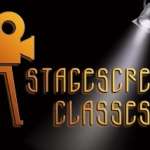Drama is an art form that represents, expresses and examines human conflicts and concerns through the medium of live performance. The birth of modern-day drama can be traced back to Classical Greece (indeed, the word drama comes from a Greek word meaning action ), where plays were typically divided in to the categories of tragedy or comedy and performed in front of an audience, often during festivals. Though other mediums for dramatic performance have emerged in the forms of television and radio, drama is still widely associated with the traditional setting of the stage.
What does it involve
All the world s a stage, And all the men and women merely players William Shakespeare, As You Like It, Act 2, Scene 7 Getting involved in drama can seem intimidating to those without some prior experience meeting and performing in front of strangers can of course be daunting but while it can be a challenging environment, it is never an unwelcoming one. In fact, part-time Drama classes are typically energetic, fun and supportive places to be. An introductory Drama course will put any nagging concerns over the truth of this claim quickly to rest. Students will quickly learn to cast aside their inhibitions through a series of warm-up exercises, improvisation routines, vocal coaching, and acting workshops (which may be recorded for later analysis). This may sound slightly intimidating, but it isn t trained and experienced course leaders will guide and encourage you all the way, while building a group dynamic that facilitates learning and improvement in a fun, informal atmosphere. Many introductory programmes are also run over a relatively short period of time (some are as short as three weeks) and so any curious (or apprehensive) learners have a chance to test the waters and decide for themselves whether they d like to go on and do a more in-depth course. At the deeper end of the pool are options that are designed to encourage a greater level of spontaneity and imaginative development in participants. Some will achieve this by incorporating elements of script writing and character creation in allowing students to gain insight into the full creative process behind all dramatic pieces. Rehearsal, repetition and emotional exploration will be employed in order to elicit more complex and nuanced performances from participants. Some of the more long-term options will test a learner s progress with a public performance towards the programme s termination. Of course no actor s stage portfolio can be considered complete without tackling the work of the Bard of Avon, William Shakespeare. While many programmes will devote at least some time to Shakespearean recital, enthusiasts also have the option of taking a course in Performing Shakespeare. Participants will learn to view the work of the great man from the actor s perspective while undergoing intensive classes in acting technique; rehearsals; and speech, voice and movement training all of which are designed to build the actor s facility to bring Shakespeare s complex characters to life on stage. Those who feel more inclined towards directing others towards their own artistic vision may also be interested in the part-time MFA in Theatre Directing, which is of two years duration. The course has been designed through extensive consultation with the Irish theatre community and is a direct response to the stated needs of the industry and of talented emerging artists. Students can expect workshops, visiting lectures, individual and group tuition from professional directors, a professional placement and the chance to showcase their work with a public performance.
Why do it
Drama classes are not just for extroverts learning to act is a fantastic way of getting participants to step out of their comfort zones by responding to and being supportive of others, and, in so doing, working on their general communication skills. In this way Drama classes also encourage a tremendous amount of group interactivity and participants are as likely to learn from each other as they are from the course structure itself. In addition, part-time Drama courses are also ideal for lovers of literature. By rehearsing and performing scenes from the works of master dramatists such as Ibsen, Beckett, or Pinter, actors inevitably gain a yet deeper level of insight in to the characters, conflicts and concerns of their favourite dramatic works.
What comes next
While treading the boards is the major goal of most drama students, few will expect that their first performance will on Broadway or the West End. To catch a major break in drama and theatre requires talent, dedication, years of hard work and good fortune. It also takes persistence and self-belief: remember, We are such stuff as dreams are made on . Of course not everyone can become a professional actor, although this is not to say that doing a Drama course is not time well spent. Indeed, plenty of course graduates go on to work as directors or producers with local acting groups, or as consultants or supervisors within community development projects.
At a glance
Introduction to Acting courses typically run for between three and ten weeks. More advanced Performance classes can run for up to a year. The MFA in Theatre Directing takes two years.

















